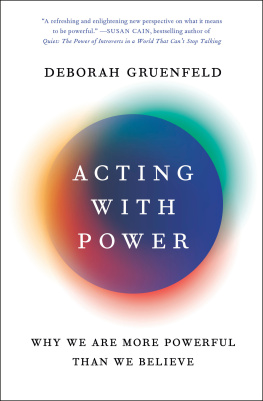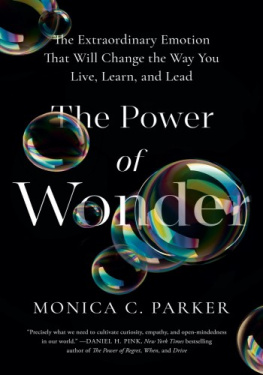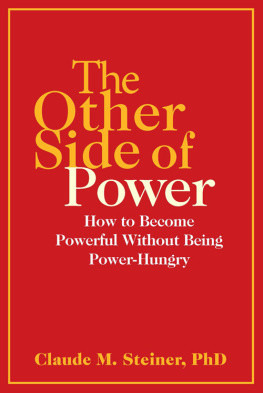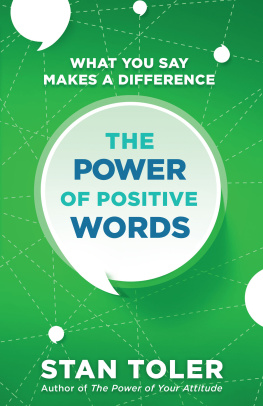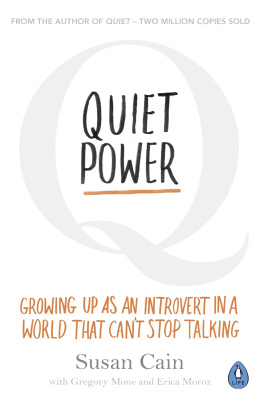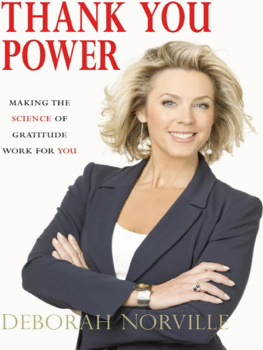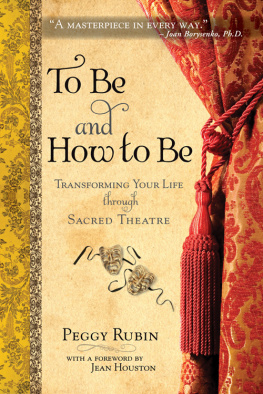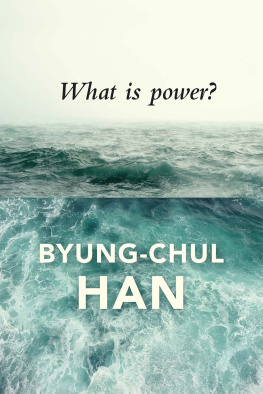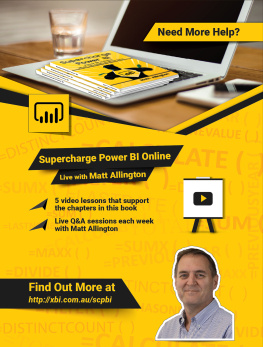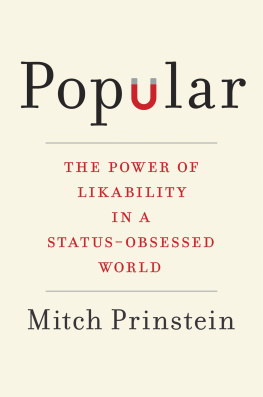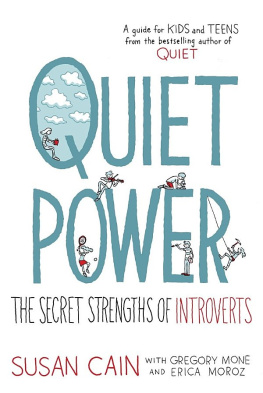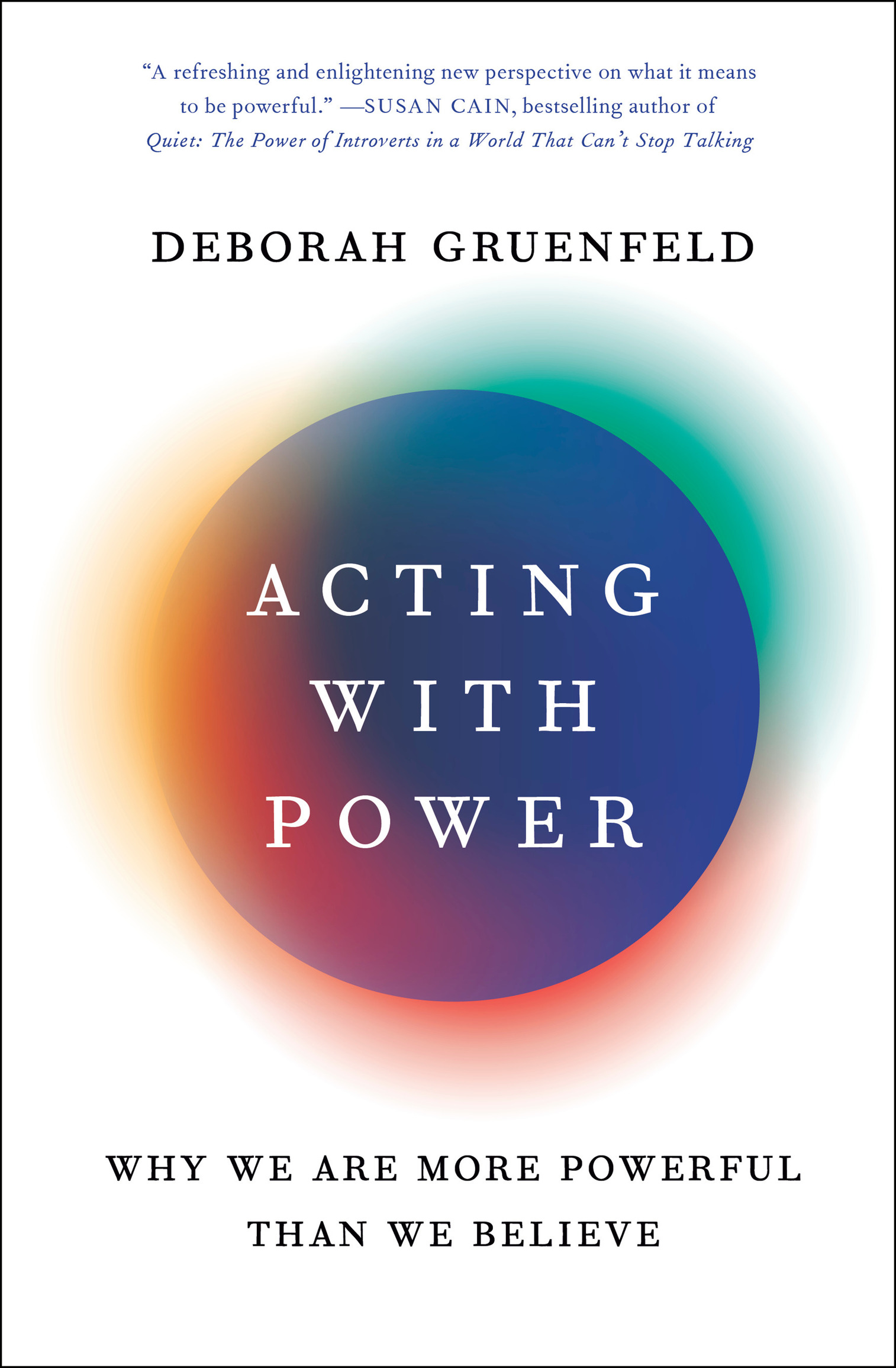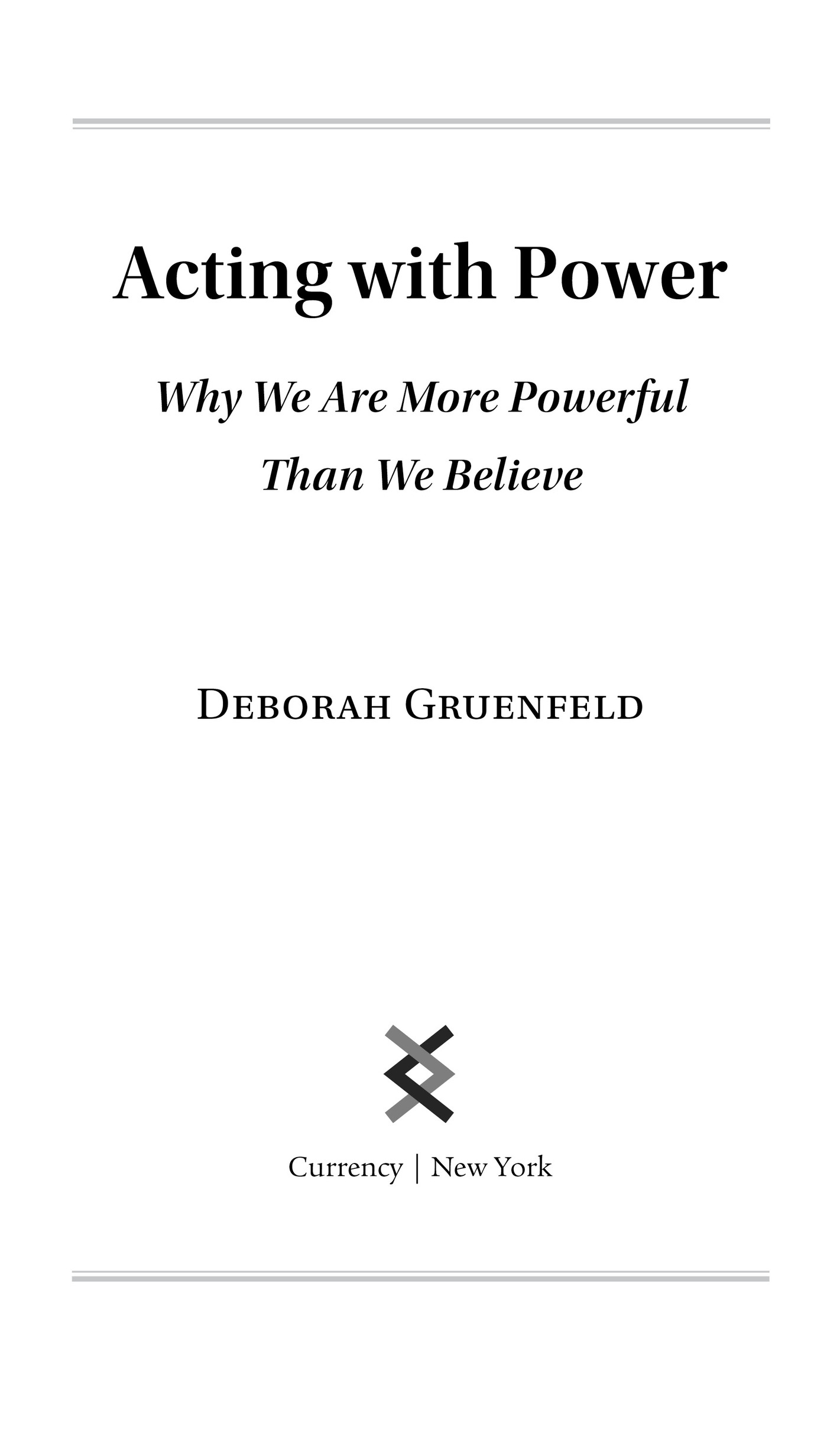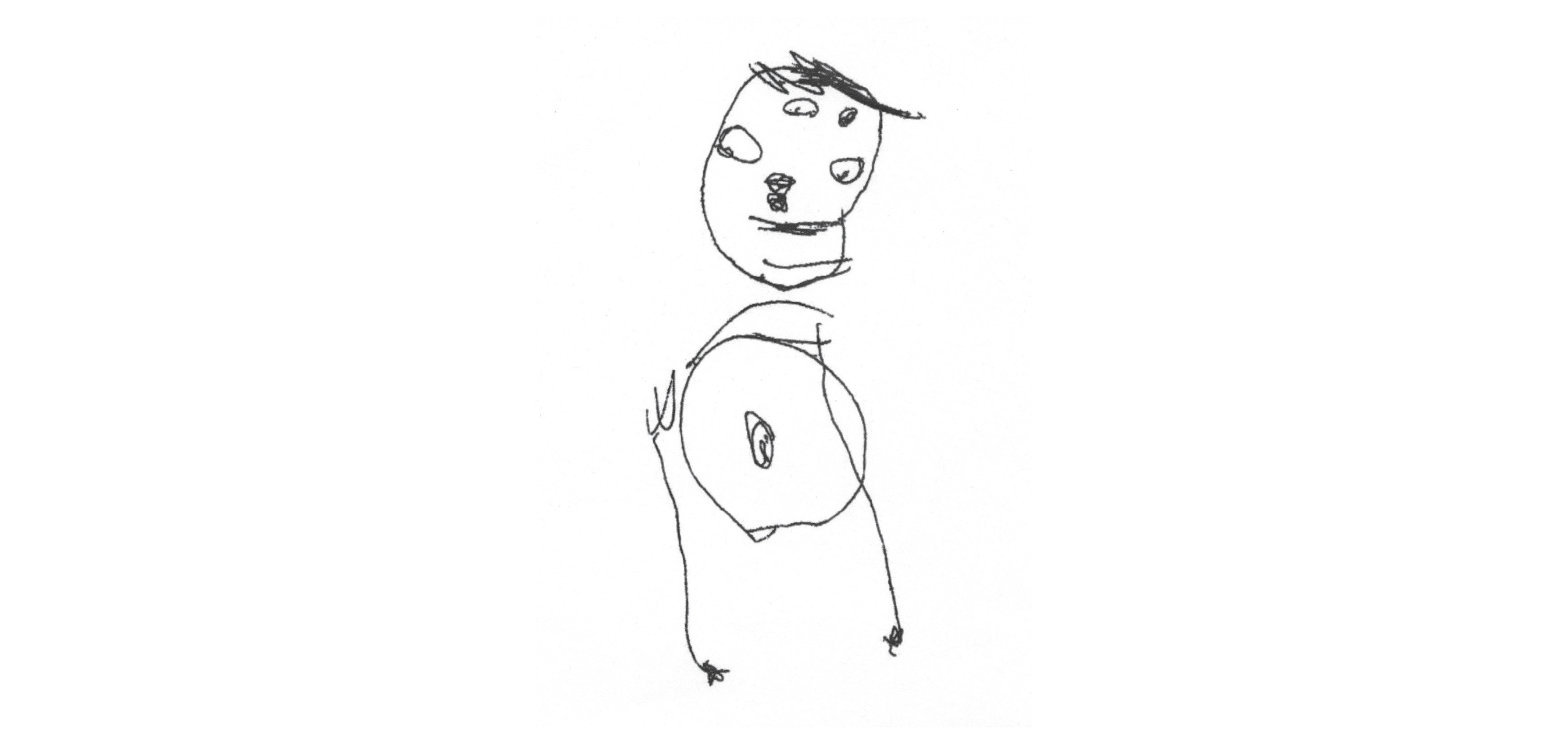I found this drawing in the farthest reaches of a file drawer at my mothers house. I knew right away who it was. The person has too many eyes, a closed mouth, and no real arms or hands. She sees everything but cant act on what she knows. Its me, in my first self-portrait, drawn when I was three.
Looking at me now, the resemblance may not be obvious. Im a chaired professor at Stanford University who has been studying, writing, and teaching about the psychology of power for over twenty-five years. I have an exciting career. I have a voice and I know how to use it. Today, the first self-portraits of my own children are stashed somewhere in the farthest reaches of a file drawer in my house. A lot has changed since I was three, but that little stick-person is definitely still with me.
There was a time when I thought it was just me who felt this way. But if Ive learned anything in my work on power, its that I am not alone. Everyone feels powerless sometimes, no matter how much power they have. And we all have power, whether we can realize it or not.
Its not intuitive. But the idea of power can make us feel small. In part, its that we learn about power in childhood, at a time in our lives when we are at our most vulnerable, and the association lingers. The first power-holders we meetthat is to say, our parents and other adult caretakersteach us lessons about how to survive in the family that most of us never outgrow. We all come into adult relationships with childhood baggageinsecurities, habits, and comfort zones that draw us into old, familiar dramas where we can play old, familiar roles. The first brush with power leaves an indelible mark.
As an academic, Ive written a lot about what having power might be like, and as a person, Ive hoped against hope that becoming an expert and attaining stature in my field would help me feel more powerful and make it easier for me to be me. Yet having power, to the extent that I do, has not felt like I thought it would. Power attracts attention, and greater scrutiny. Higher expectations, and more ways to fail, with more at stake. Having power has done little to relieve me of my childhood insecurities. It has just provided a bigger stage on which to act them out.
Learning to Play the Professor
Becoming a professor was a fairly dramatic transition. I was a graduate student for five long years, so that role had become quite comfortable. I got my PhD and accepted a job at Northwestern University, and on my very first day, just like that, became the professor. I still felt like the same person, doing the same workrunning experiments, publishing journal articles, and learning to teachbut to everyone else I was different. I was supposed to know things, to be the expert, to hold other people accountable and tell my students what to do.
It was the most uncomfortable of ironies. As a psychologist, I was a bona fide power expert. But I still felt powerless myself. I felt like an imposter, undeserving of the respect and attention that come with the role. And the more I advanced in my career, and the more my stature grew, the more I struggled to own who I was to other people. I could see how others looked in positions of power; I just couldnt see myself as one of them.
Then I had a breakthrough. It came from an unexpected place. I was asked to take part in a new program being offered to business school faculty in an effort to increase teaching quality across the board. The program was offered by a consultant whose background was in the theater. It seemed a little woo-woo, even for California, but I agreed to participate because, true to form, I thought I had to.
I spent two full days in a claustrophobic lecture hall with eight other faculty members and a diminutive, supercharged woman named Barbara Lanebrown. She asked each of us to prepare three minutes of a typical lecture and deliver it to our colleagues. After the first presentation, she asked the speakera gray-haired expert in international business with a British accentan unexpected question: Which characters, she asked, did you bring with you onto the stage? He blinked at her, genuinely puzzled, until finally, one colleague, sensing his discomfort, asked Lanebrown to clarify. A classroom, she explained gently, is like a theater, where we play the role of teacher. Then she paused to let that sink in. When we give a lecture, she continued, we are giving a performance. Like an actor, we make choices about how to play that role by enlisting characters that live within us who help us bring it to life.
Some of us shifted and smiled weakly, and I thought I heard someone snort. I remember looking around to see if anyone was buying it. Then someone voiced what I was feeling: I dont act in the classroom. Im just being myself.
Lanebrown considered this comment. Then she asked us about the teaching presentation wed just seen. Was this person, whom you know as a colleague but have never seen teach, different at all in the role of teacher? Did you see a side of him you hadnt seen before, or learn anything about him that you werent aware of?
The answer, of course, was yes. Onstage he wasnt exactly the same as the person we knew outside the classroom. As each person delivered their three-minute spiel, this proved to be true again and again. One guy, generally your typical buttoned-up academic, became more of a stand-up comic. Another normally easygoing and unusually friendly colleague became more stern, even a bit scary; he described himself, aptly, as the sheriff. A third, who was somewhat impulsive and feisty in faculty meetings, took on the quiet gravitas of the village elder. Every single one of us revealed a hidden side of ourselves when teaching. We each drew, however unconsciously, on characters we knew, who lived in us already, to give our best, or at least most comfortable, performance.
It was completely eye-opening. I learned that I brought an army of characters with me to deliver my lecture: the energetic one, the passionate one, the nervous one, the playful one, the vulnerable one, the intellectual one, the knowledgeable one, the serious one, the articulate one, and the powerful one. Needless to say, not all were actually invited, but they made their appearances anyway, and apparently the stage wasnt big enough for the ten of us. I didnt really trust any of them, it turned out: I feared that the strong ones would be off-putting and the weak ones would be pitiful. The result was that they were all wrestling behind the curtain, and the audience could see it.

